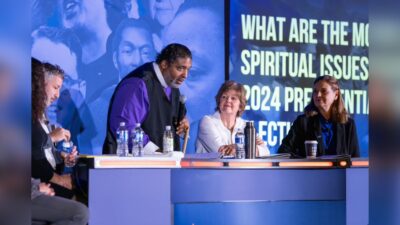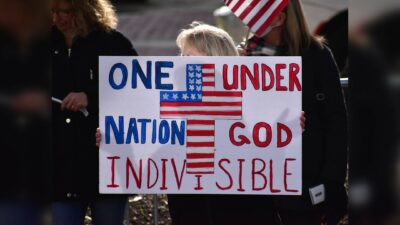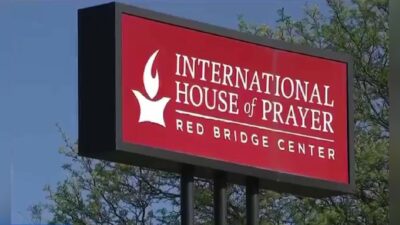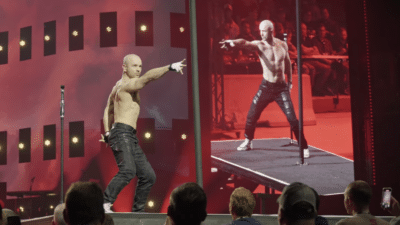The Question: Is Christianity in the United States becoming two different religions?
The Religion Guy’s Answer: If the question above seems off the wall, at least look at why it has arisen.
Two years ago, The Guy wrote that he was quite astonished by some survey research reported in “The Twentysomething Soul” (Oxford University Press) by Tim Clydesdale of the College of New Jersey and Kathleen Garces-Foley of Marymount University.
Young Americans age 30 and under, quizzed about religion, were asked how they think of God.
One option was “a personal being, involved in the lives of people today.” It doesn’t get any simpler or more basic than that, whether you’re Jewish, Christian or Muslim. Other choices were some impersonal “cosmic life force,” or a deistic creator who is “not involved in the world now,” or that God does not exist.
Your tax-deductible gift helps our journalists report the truth and hold Christian leaders and organizations accountable. Give a gift of $30 or more to The Roys Report this month, and you will receive a copy of “Hurt and Healed by the Church” by Ryan George. To donate, click here.
Not surprisingly, the evangelical Protestants were virtually unanimous in embracing the first definition. But remarkably, only half of those in the predominantly White, theologically pluralistic mainline Protestant church bodies made that choice, while 40 percent favored the vague “life force.”
Young adult Roman Catholics fell in between the two Protestant groups. In this random sample, 30% were evangelicals, 18% were Catholic, 14% were mainline Protestant and 29% had no religious affiliation.
The Guy therefore posed the question whether Protestants’ long-running two-party rivalry “could be evolving toward a future with two starkly different belief systems.”
Now a more radical version of that scenario is explored at book length in “One Faith No Longer” (New York University Press) by Baylor University sociologist George Yancey and Ashlee Quosigk, a visiting scholar of religion at the University of Georgia.
Their provocative proposal asserts that conservative and progressive Christians have become so thoroughly polarized in values, goals and identity that they’re no longer “subgroups within the same religion.” Rather, they are in the process of becoming — or already are — “two distinctive religious expressions. … The distinctions are so powerful that it is indeed no longer feasible to consider them in the same religious category.”
Yancey and Quosigk go so far as to compare this with the way Buddhism continued some concepts of Hinduism but evolved into a separate world religion. They say progressive and conservative Christianity are “all-but-separate” religions, with essential goals that are “diametrically opposed.”
They want to highlight this situation, saying that scholars and the media have long neglected the internal life of liberal churches while closely focusing on every twist and turn among the conservative evangelicals. The Guy himself has done this, posting several recent items about a “crack up” among evangelical leaders and alienation between them and grassroots believers.
Since the rise of Donald Trump, political furies have exaggerated such fissures in U.S. religion and culture, but the book says the Christian split was evident in pre-Trump America, and the kernel of the phenomenon stemmed from the dispute between Protestant fundamentalists and modernists in the late 19th and early 20th centuries.
This brings up what The Guy finds confusing about this innovative new research. The book scans Christians’ attitudes toward the Bible and Islam but not other doctrinal matters and puts major focus on “thermometer” ratings of respondents’ warm and cold feelings — toward other groups in society, assorted opinion articles and quotes from in-depth interviews with 36 conservative clergy and lay leaders and 41 from the progressive side, plus 25 pages of resource material on this subject.
Especially because the interviewees are anonymous with no breakdown by affiliation or credentials, it’s hard to tell how much the long-running conflict among White Protestants — currently causing pending schisms in the Reformed Church in America and United Methodist Church — shapes Black and Hispanic Protestant churches and especially Catholics in this proposed Christian-wide split. Also tricky is that some of the interviewed evangelicals were ranked “progressive.”
This piece originally appeared at Get Religion.
Richard Ostling, who has a regular column titled Religion Guy Q&A, is a former religion reporter for the Associated Press and former correspondent for TIME Magazine.



















20 Responses
The reality, of course, is there is not such a thing as “Christianity” with adjectives (labels) – there is simply Christ, the man attested to by God, who is the all things in all. Either we walk with God in Christ – eschewing our favorite idols including worship of spiritually bankrupt evangelicals leaders, e.g. John MacArthur – or we are MacArthurites. You cannot be both.
Take your pick.
BTW – yes, Trump is NOT the problem – he is the symptom of the disease of evangelical dominionism that has LONG been identified – and God simply used him to expose the cancerous puss that many of the followers of Jesus of Nazareth have long identified.
I don’t look at the new terms for religion
Conservative/Progressive Christian l! I believe in God the father Son and Holy Spirit. By faith I am saved and by no other way. He knows His by the number of hairs on their heads. There are no strings ( like a puppet) on any one to make the do what He wills it’s called Freedom of choice.
plus ca change plus c’est la meme chose:
“In my little book, Christianity and Liberalism, 1923, I tried to show that the issue in the Church of the present day is not between two varieties of the same religion, but, at bottom, between two essentially different types of thought and life.” J. Gresham Machen
“…fundamentalists shifted to a much more inward and individualized strategy, that of calling non-believers into a saving relationship with Jesus Christ. There were at least two reasons for this. First, their recent setbacks had soured them on political action; their successes in passing anti-evolution legislation and
Prohibition had proven to be only temporary. Second, their eschatology taught them that wickedness, crime, natural disasters, persecution of faithful Christians and political oppression would all increase before the return of Christ. Fundamentalists directed their energy toward revival because it seemed to them that real, lasting political reform was impossible….
“Expect as little as possible from churches, or governments, under the present dispensation,” declared a British evangelical in 1878. Moody echoed the assessment: “Each dispensation…end[s] in failure…I don’t find anyplace where God says the world is grow better and better…I find that the earth is to grow worse and worse.”This pessimism continued into the twentieth century, and could foster, as Paul Boyer notes, an antigovernment, antireform ideology. Barnhouse argued that the Bible gave Christians no mandate “to go out and crusade for political righteousness.” —Joseph D. Harder PhD
“”Heal Their Land”: Evangelical Political Theology From the Great Awakening to the Moral Majority’
https://tinyurl.com/qsvclox
You used to be able to read his dissertation on the website but now you have to download it. It is quite good in giving a lot of history. It does show you that there has been separation between liberals and conservatives since Harry Emerson Fosdick in the early 20th century and of course from the quotes from above even before that ❗
This has been true for some time. The progressive Christians I know are far more likely to reject biblical epistemology, embrace heterodox beliefs, approve of or at least refuse to disagree with aberrant moral behavior and are willing to attribute the worse motives to those who disagree with them. J. Gresham Machen was correct. Liberalism is a different religion.
Joe, it appears you use a really big brush in your comment against “liberalism”. I could easily argue Conservatives have hurt their witness by getting so actively involved in politics. Yes, conservatism is its own religion also.
Yes I agree it is sad.
Joe, when you said that progressive Christians “approve of or at least refuse to disagree with aberrant moral behavior and are willing to attribute the worse motives to those who disagree with them”, I immediately thought of how conservatives have done this when excused and refused to disagree with the aberrant moral behavior of Donald Trump, all while painting all liberals with such accusatory labels as “God-hating” and “Marxist.”
Interesting how we can often become that which we claim to disavow.
It shocks me as to how many “churches” and pastors no longer hold to the truths of the Apostles Creed.
There is a new schism that was not mentioned and that has to do with Critical Race Theory vs. Biblical views of Justice. Also, who will or won’t take the shot and between those who recognize the soft-totalitarianism of our government and those who think it is only “a health or medical” issue. We are also split on issues of gender.
In terms of the arc of human history and belief, today’s American religious snapshot is a speck. Come back in a century or two and see how it turned out.
Yes they are two separate religions.
Conservative Christianity – Jesus is the Christ.
Liberal Christianity – Jesus is the Christ, but it is myth.
Though at this point Liberal Christianity denominations have lost so many members since the 1960s that it is pretty much irrelevant at this point.
The U.S. has grown to 330 million and at the same time liberal denomination have lost millions of members… game over…..
Though it is a manner of time that Conservative Christianity will meet the same end.
Many young people are becoming “None” or “Done”….
With so many evangelicals being Republicans, young people in the U.S. increasingly do want anything of the Jesus that evangelicals are pushing… as they see the behavior of Republicans as appalling.
Interesting, I saw a recent poll of 18 to 30 year-olds where only 18% percent of them saw themselves as Republicans…..
Progressive christianity is Babylon. The “falling away” church. It’s time to repent and turn back to the Bible 100% before the conscience is seared. Those still trying to placate both sides are actually choosing the side of progressive christianity; therefore joining in the dehumanization and persecution of Christians. The Bible says these things will happen.
It is prophesied there will be a great apostasy. Progressive Christianity is not Christianity. It is self-worship.
Conservative Christianity needs to disengage itself from unbiblical Trumpism, the deadweight of current American evangelism.
Traditionally, my experience has been that conservative Christianity emphasizes a personal walk with God, and liberal Christianity is more ideological (more like Christianism). The current conservative trend toward nationalism, in my opinion, is in danger of exchanging a relationship with the living Christ for another ideology.
It seems to me that where progressive ideology and values flourish Christian ideology and values decline. Western Europe comes to mind as an example where we see so many churches either boarded up or turned into museums.
It isn’t hard to see both points of view.
Conservative Christians see Progressives as having rejected the authority of Scripture. Progressive Christians see Conservatives as claiming to follow Jesus but choosing a politic that emphasizes the individual at the expense of the least of these.
I don’t think that the Conservative/Liberal dichotomy is the central matter. Rather the central matter (for serious Christians) is epistemological; where changes in the epistemology that a population is subscribing to, is affecting both there wings or variants of Christianity. The epistemological change resulting from holistic change to the human world we find ourselves living in. Some aspects of both variants of Christianity are falling away, because the holistic human condition which gave rise to and reflected them, is no longer much in play. The beliefs and orthodoxies of both these variants will be tested going forward. What aspects of each which will pass testing, will have as much to do with a wider human world outwith formal Christianity, as it will have to do with what goes on within formal Christianity.